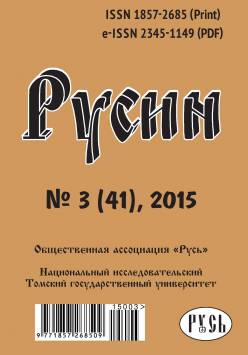Truth and post-truth in the revolutionary axiological conflict in Ukraine
In October 2017, the new Kiev Maydan reminded Ukrainians that the revolution was not over, that the truth had not triumphed, and the good had not taken over the evil. This gives grounds to consider the most important basic value of truth as well as the post-truth, generated by the era of deconstruction, as a relevant information and political phenomena. Drawing on J. Derrida, this research shows how the text of truth loses its moral universality to generate readers' versions of post-truth. In the postmodern political culture, truth and post-truth lose their benchmark antipodality and become equal as semantic phenomena. Truth confronting lies simultaneously manifests itself as an attribute of ours (good, true, etc.). Theirs is endowed with the properties of evil, lies. In the era of private exchanges, btogger as a text, post-truth has equal rights with truth to label us and our opponents, the good and the evil. Moreover, according to M. Bakhtin, truth itself contains its opposition - lie. It concerns the official truth, the truth of today lying about its service to the future. Opposed to it is people's truth epitomised by the revolution. Considering the bearers of this truth through the example of the Kiev Maydan, the authors compare it with past revolutions. The revolutionary and axiological conflict in Ukraine is described in the form of two antithetic media realities. They represented the sides of the revolutionary symbolic confrontation in the form of a spectacular action and a military heroic duel. This political form of deconstruction contained an axiological motive, which acquired the symbolic dynamics of the old/new, changing truths, as termed by Bakhtin, and the western/eastern. Since the first Maydan, the truth of the revolution has been transformed into the post-truth. The inversion of the axiological conflict in Ukraine manifested itself in the constructivist insufficiency of the simulated binary media reality. Instead of a single text of the truth of the Ukrainian revolution, media constituted private interpretations of its content. The Maydan as a text constantly changed its own versions, while attempts to create a mytho-heroic political structure were accompanied by parallel deconstructive acts. As a result, a new semantic political context was not created, and the revolution with its conflict of values established as an old stereotype. Thus, the Ukrainian revolution, in fact, has not ended.
Keywords
деконструкция, «правда», истина, «постправда», революция, карнавал, Украина, deconstruction, truth, verity, post-truth, revolution, carnival, UkraineAuthors
| Name | Organization | |
| Shcherbinin Aleksey I. | Tomsk State University | shai52@mail.ru |
| Shcherbinina Nina G. | Tomsk State University | sapfir19@mail.ru |
References
_12_2017_1514918819.jpg)
Truth and post-truth in the revolutionary axiological conflict in Ukraine | Rusin. 2017. № 4 (50). DOI: 10.17223/18572685/50/9
